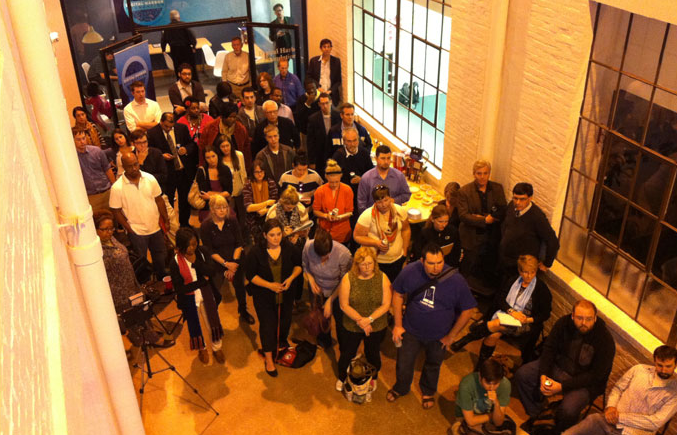It’s been a busy year in education technology.
In 2012, $1.1 billion of venture capital funding went to EdTech companies. Of 2,788 private companies acquired in that year, 48 of them were private EdTech firms.
These aren’t idle statistics.
- One-third of EdTech venture financing in the last year went to just 10 companies, two of which have direct connections to Maryland — 2U, formerly 2tor, based in Prince George’s County, and Desire2Learn, a Canada-based firm with an office in Mount Vernon.
- Moodlerooms, located on Ostend Street to the west of Federal Hill, was acquired by Blackboard last April.
- The year prior, in fall 2011, Harbor East-based Connections Education was bought by Pearson for reportedly $400 million in an all-cash deal.

But while the uptick in EdTech financing in the last year is encouraging for investors, innovators and people on the sidelines eagerly waiting for education to be disruptified with a giant Iteration Ray (or by, you know, startup companies), it’s become fertile ground for people calling EdTech the next bubble to pop.
By the measure of some, Maryland, and the Baltimore region in particular, has an ever-expanding stake in the success of EdTech: in the fall, the Economic Alliance of Greater Baltimore issued a report that boldly proclaimed “no region is better positioned for the launch of a new EdTech company.” (This reporter should note that the EAGB cited several Technically Baltimore stories about EdTech startups in its report.)
In theory, it makes sense to worry about an EdTech bubble. Insert obscene amounts of money into a buzzing segment of the startup world, watch as more angel investors and big venture firms toss more money in, and then step back and warn people to buckle up before the incoming crash.
In practice, however, it’s a prediction that appears too rigid, too soon, as a new CB Insights report argues. There’s a lot of complex information about valuation multiples and mergers and acquisition data, important all for CB’s ultimate conclusion, but let’s skip the jargon.
- CB writes: “Despite the uptick in EdTech venture capital and chatter about an EdTech financing bubble, valuation multiples have stayed well within historical ranges.” (OK, a bit of jargon. See the graph below.)

Translated: we’re not yet valuing private edtech companies at more than what they’ve been in the past, even when companies like Desire2Learn raise a cool $80 million in financing. (Who was part of that round? New Enterprise Associates, for one, with an office in Timonium.)
Of course, some of the concern around a potential EdTech bubble is similar to the concern — and the real, raw data — that metastasized prior to the Series A crunch hitting late last year and continuing into 2013. It’s been predicted, by CB Insights, actually, that the crunch will cut down some 1,000 startups before founders are through chasing too few Series A dollars.
So for the sake of sport, let’s assume an EdTech bubble is going to burst. Let’s assume that EdTech startups, even ones with traction, revenues, customers, the ones that should be safe from Series A crunch and EdTech bubble alike, are about to get slammed.
Both Frank Catalano at GeekWire and Audrey Watters at Hack Education, despite marshaling some convincing reasons as to why an EdTech bubble might be coming down the road, manage to put their fingers on the one force that could prevent it all:
- Realizing that measuring the success of education technology companies by profit margins, and profit margins only, misses the entire point of education technology companies.
EdTech startups, regardless of what stage they’re in, need to make money to stay afloat. This is Not Sucking at Business 101. But education technology need not be owned and operated by the disrupters.
As Frank Bonsal III, partner with New Markets Venture Partners in Howard County, said at Startup Grind in December: EdTech companies that are “solving real problems,” not necessarily “turning something on its head,” and seek not to “supplant teachers” in the classrooms are the ones he puts money toward.
Watch another local investor and Bill Me Later cofounder, Vince Talbert, talk about why he invests in EdTech startups:
[youtube https://www.youtube.com/watch?v=SWNb95FEUeM]
Provided that EdTech firms, in Baltimore and beyond, spend more time building products that assist teachers in their jobs and make learning more meaningful for students — and little or no time chasing a sexy idea bound to fail — there will be no need to administer the saltines and seltzer to a sick patient.







